China Sourcing Agent Fee
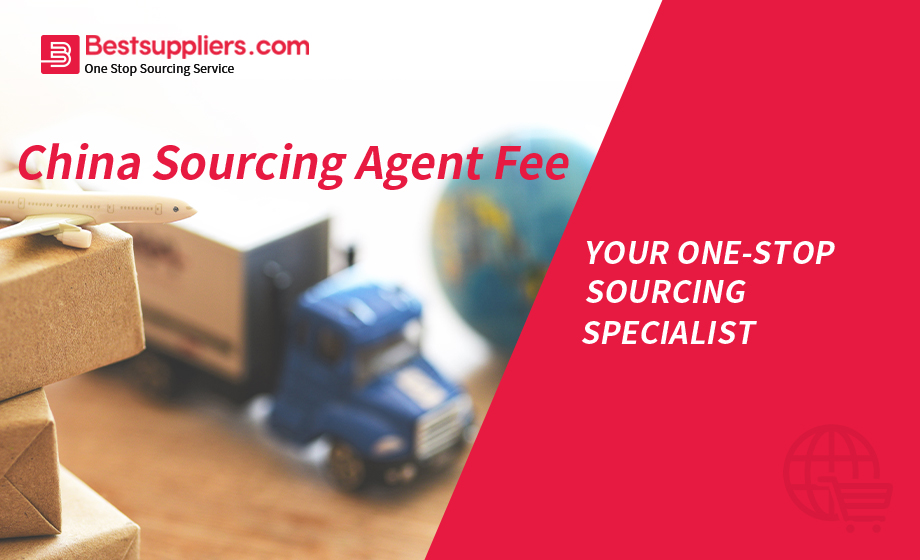
Introduction
In today's globalized economy, businesses often turn to China as a prominent sourcing destination for their products. However, navigating the complexities of international trade can be challenging, especially for those unfamiliar with the Chinese market. This is where a China sourcing agent can play a crucial role. In this article, we will delve into the definition and importance of sourcing agents in international trade, focusing on China as a popular sourcing destination.
Definition of a China Sourcing Agent
A China sourcing agent is a professional intermediary who facilitates the process of finding, evaluating, and selecting suppliers in China on behalf of businesses seeking to source products. These agents possess comprehensive knowledge of the Chinese market, including the cultural, legal, and logistical aspects of conducting business in China. They act as a bridge between buyers and suppliers, streamlining the sourcing process and ensuring a smooth and efficient supply chain.
Importance of Sourcing Agents in International Trade
Sourcing agents are invaluable assets for businesses engaged in international trade, particularly in the context of China. They provide a range of services and expertise that mitigate the risks and complexities associated with sourcing from a foreign country. By leveraging their knowledge and networks, sourcing agents help businesses identify reliable suppliers, negotiate favorable terms, and ensure quality control throughout the production and delivery process. Moreover, they serve as a trusted partner, offering guidance and support in navigating cultural and language barriers, regulatory compliance, and logistical challenges.
Overview of China as a Popular Sourcing Destination
China has long been recognized as a global manufacturing powerhouse, offering a vast array of products across diverse industries. The country's manufacturing capabilities, cost advantages, and extensive supply chains make it an attractive sourcing destination for businesses worldwide. From consumer electronics to textiles, China has established a reputation for producing high-quality goods at competitive prices. Additionally, China's robust infrastructure and well-developed logistics network enable efficient transportation and timely delivery of products to global markets.
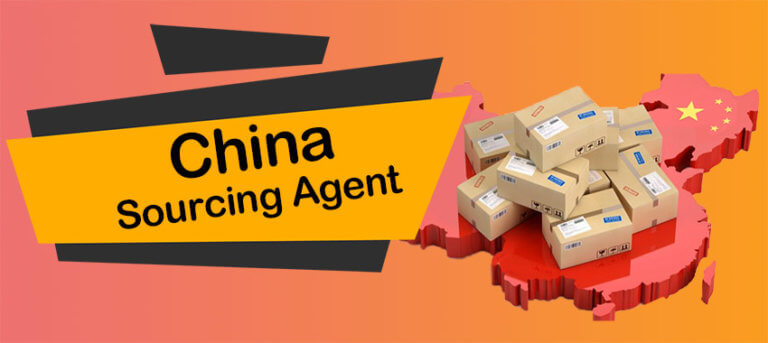
The Role of a China Sourcing Agent
To fully comprehend the significance of sourcing agents in China, it's essential to understand their core responsibilities and the benefits they bring to the table.
Responsibilities of a Sourcing Agent
A sourcing agent's responsibilities encompass a wide range of tasks throughout the sourcing process. These include market research and supplier identification, negotiation of favorable pricing and terms, product sampling and quality control inspections, order management and logistics coordination, and post-sales support. They act as an extension of the buyer's team, ensuring a seamless sourcing experience while mitigating risks and optimizing outcomes.
Benefits of Using a Sourcing Agent in China
Engaging a sourcing agent in China offers numerous advantages for businesses. Firstly, it saves valuable time and resources by leveraging the agent's expertise and network, allowing buyers to focus on their core competencies. Sourcing agents possess an in-depth understanding of the local market dynamics, supplier capabilities, and industry trends, enabling them to identify the most suitable suppliers for specific product requirements. Moreover, they help negotiate competitive prices, secure favorable terms, and ensure adherence to quality standards, minimizing the potential for costly mistakes or fraudulent activities.
How a Sourcing Agent Helps with Supplier Selection and Verification
Selecting the right supplier is critical for successful sourcing endeavors, and this is where a sourcing agent's expertise shines. Agents employ rigorous supplier selection and verification processes to ensure the reliability and credibility of potential suppliers. They conduct comprehensive assessments, including supplier audits, verification of licenses and certifications, and evaluation of production capabilities. This meticulous due diligence helps buyers make informed decisions and mitigate the risks associated with partnering with unknown or unreliable suppliers.
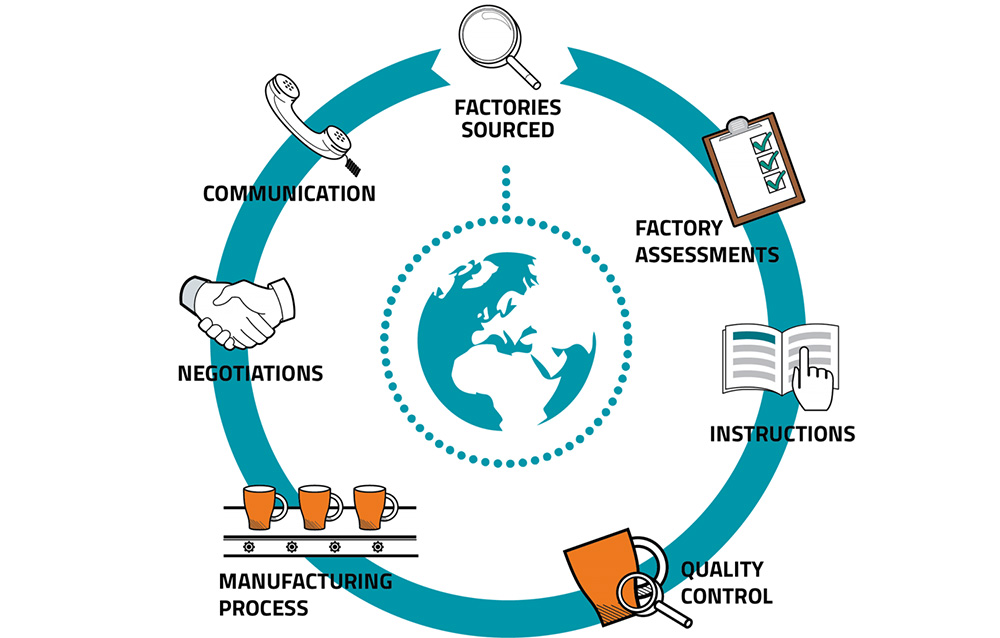
Factors Influencing China Sourcing Agent Fees
When engaging a sourcing agent in China, it's important to understand the factors that influence their fees. This knowledge enables buyers to assess the cost-benefit ratio and make informed decisions when selecting a sourcing agent.
Complexity and Scope of the Sourcing Project
The complexity and scope of the sourcing project significantly impact the fees charged by sourcing agents. Projects involving intricate product specifications, extensive supplier research, and complex logistics require more time and effort, thereby warranting higher fees. On the other hand, relatively straightforward projects with standardized products and readily available suppliers may incur lower fees.
Volume and Frequency of Orders
The volume and frequency of orders also play a role in determining sourcing agent fees. Agents often offer discounts or reduced fees for buyers who place large or recurring orders, as it represents a long-term business relationship that benefits both parties. Higher order volumes usually result in economies of scale, allowing agents to allocate their resources more efficiently and potentially lower their service fees.
Sourcing Agent's Expertise and Experience
The expertise and experience of a sourcing agent contribute to the fees they charge. Seasoned agents with a proven track record and a deep understanding of specific industries or product categories may command higher fees due to the value they bring to the sourcing process. Their knowledge of market trends, supplier capabilities, and negotiation strategies can yield significant cost savings and improved outcomes for buyers.
Additional Services Provided by the Sourcing Agent
Sourcing agents often provide a range of additional services beyond the core responsibilities mentioned earlier. These services may include market research, intellectual property protection, factory audits, product customization, sample consolidation, and supply chain management. The provision of these value-added services may impact the overall fees charged by the sourcing agent. Buyers should carefully evaluate their specific requirements and consider the potential benefits of additional services before finalizing the fee agreement.
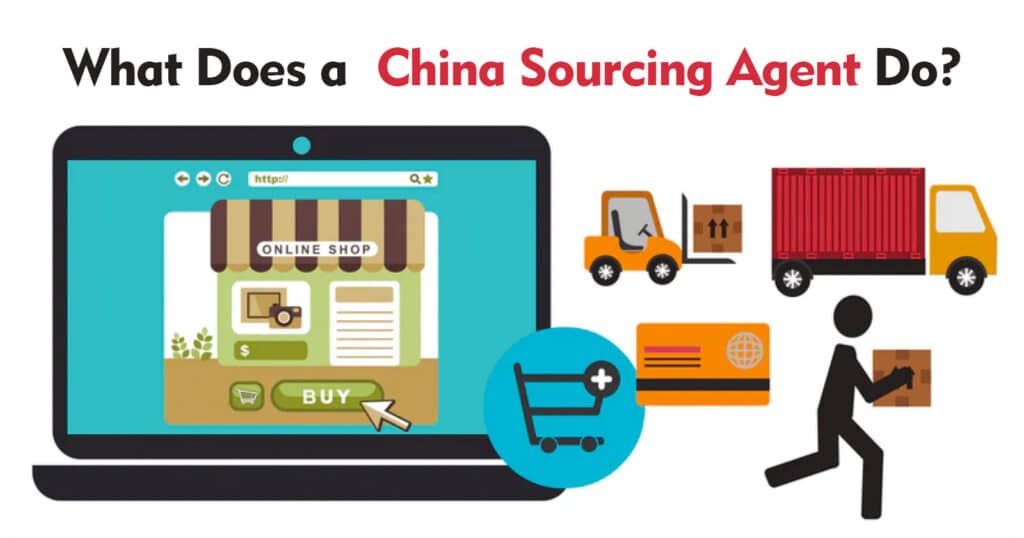
Common Fee Structures Used by China Sourcing Agents
China sourcing agents employ different fee structures based on the services they provide and the preferences of their clients. Let's explore two common fee structures: commission-based fees and flat-rate fees.
Commission-based Fees
Commission-based fees are a prevalent pricing model in the sourcing industry, where the agent's compensation is directly tied to the value they generate for the buyer.
Percentage-based Commission on Order Value
Under this structure, the sourcing agent charges a percentage-based commission on the total order value. The commission rate typically ranges from 3% to 10%, depending on various factors such as the product category, order volume, and the agent's expertise. This fee structure aligns the agent's interests with the buyer's, as the agent is incentivized to secure the best pricing and terms, driving cost savings for the buyer.
Commission Based on Cost Savings Achieved
In this fee structure, the sourcing agent's commission is determined based on the cost savings they achieve for the buyer. The commission is calculated as a percentage of the difference between the initially quoted price and the negotiated price. This model incentivizes the agent to negotiate aggressively with suppliers to obtain the most favorable pricing and terms. However, it's important to establish clear benchmarks and guidelines to ensure transparency and avoid potential conflicts of interest.
Flat-rate Fees
Flat-rate fees provide a fixed pricing structure, irrespective of the order value or cost savings achieved. Let's explore two types of flat-rate fees commonly used by sourcing agents.
Fixed Fee per Sourcing Project
In this fee structure, the sourcing agent charges a fixed fee for each individual sourcing project. The fee is agreed upon upfront and remains constant regardless of the order value or complexity of the project. This model offers predictability and simplifies the cost calculation for the buyer. However, it's crucial to ensure that the fixed fee accurately reflects the agent's effort and resources required to complete the project.
Monthly or Annual Retainer Fee
Under a retainer fee arrangement, the buyer pays the sourcing agent a fixed fee on a monthly or annual basis. This fee covers a specified scope of services and is designed for long-term partnerships. Retainer fees provide the buyer with ongoing access to the agent's expertise and support, allowing them to leverage
the agent's services as needed. This model is particularly beneficial for businesses with recurring sourcing needs or those requiring continuous monitoring of supplier performance.
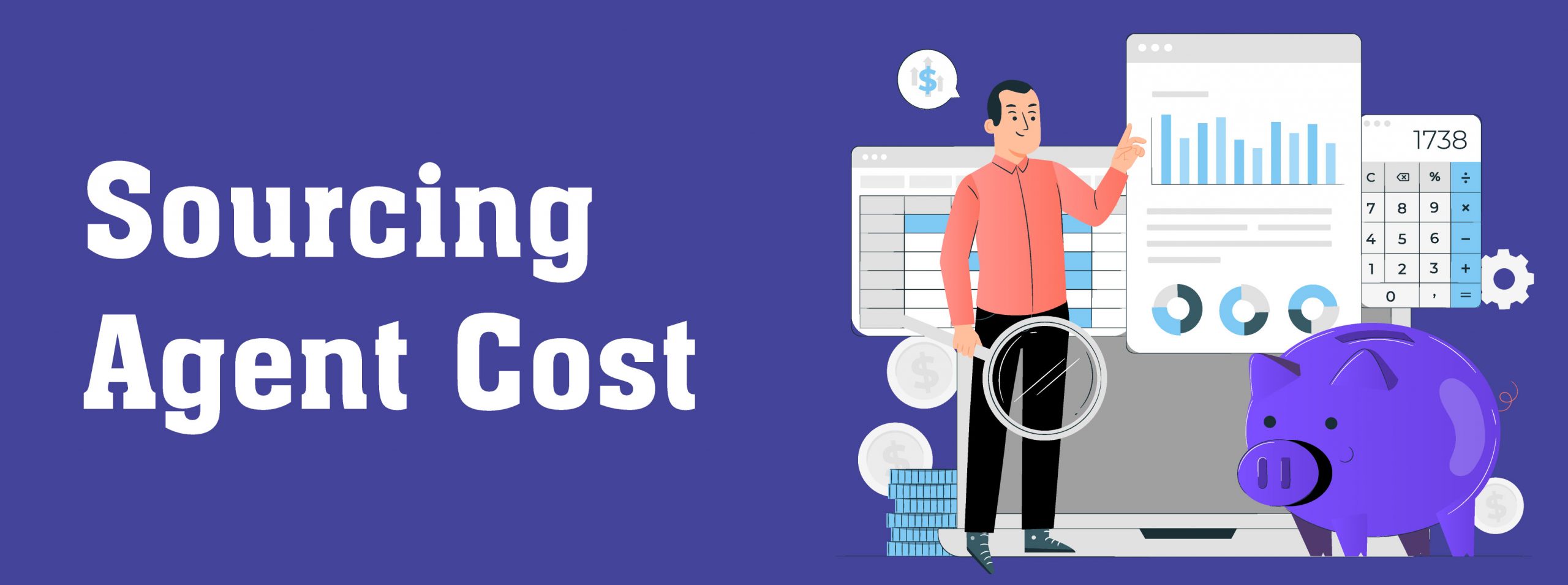
Commission-based Fees: Percentage-based Commission on Order Value
Commission-based fees, particularly the percentage-based commission on order value, offer a results-driven approach to sourcing agent compensation. Let's delve deeper into this fee structure and explore its intricacies.
Explanation of the Percentage-based Commission Structure
When a sourcing agent charges a percentage-based commission on order value, the fee is calculated as a percentage of the total value of the buyer's order. This fee structure incentivizes the agent to negotiate better pricing and terms with suppliers, as their compensation directly correlates with the order value. The commission percentage may vary based on factors such as the product category, order volume, and the agent's expertise.
Factors Affecting the Commission Percentage
Several factors influence the commission percentage charged by sourcing agents. Firstly, the complexity and specificity of the product requirements can impact the commission. Products with intricate specifications or specialized manufacturing processes may require additional effort and expertise, justifying a higher commission percentage. Additionally, the order volume plays a role, as larger orders often result in more significant cost savings for the buyer, warranting a higher commission percentage for the agent. Lastly, the agent's experience and track record may also influence the commission percentage, with highly experienced agents commanding higher fees due to their proven ability to deliver value.
Pros and Cons of this Fee Structure for Buyers
The percentage-based commission structure offers several benefits for buyers. Firstly, it aligns the interests of the buyer and the agent, as the agent is incentivized to negotiate the best possible pricing and terms, ultimately driving cost savings for the buyer. This fee structure also ensures that the agent's compensation is directly proportional to the value they generate, creating a sense of accountability and performance-driven outcomes. However, buyers should carefully consider the commission percentage to avoid excessive fees that may erode the cost savings achieved through negotiation. It's important to strike a balance that reflects the agent's value while remaining economically viable for the buyer.

Commission-based Fees: Commission Based on Cost Savings Achieved
Commission-based on cost savings achieved is another commission-based fee structure that offers a unique incentive for sourcing agents. Let's explore this structure in more detail.
How this Fee Structure Incentivizes Sourcing Agents
Under the commission-based cost savings achieved structure, the sourcing agent's compensation is directly linked to the cost savings they generate for the buyer. This creates a powerful incentive for the agent to negotiate aggressively with suppliers, aiming to secure the best possible pricing and terms. By aligning the agent's financial reward with the buyer's cost savings, this fee structure ensures that the agent's interests are fully aligned with the buyer's goals.
Calculation of Commission Based on Cost Savings
To calculate the commission based on cost savings, the sourcing agent determines the difference between the initially quoted price and the final negotiated price. The commission is then calculated as a percentage of this cost savings. For example, if the initial quote was $10,000, and the agent negotiates a final price of $8,500, resulting in a cost saving of $1,500, the commission might be calculated as a percentage of this $1,500. The specific commission percentage should be agreed upon between the buyer and the agent before commencing the sourcing project.
Benefits and Drawbacks for Buyers
The commission-based structure based on cost savings offers several benefits for buyers. Firstly, it motivates sourcing agents to exert maximum effort in negotiating the best pricing and terms, driving significant cost savings for the buyer. This fee structure also provides transparency and accountability, as the commission is directly tied to the measurable impact the agent achieves. However, buyers should ensure clear benchmarks and guidelines are established to avoid potential conflicts of interest or disputes over the calculation of cost savings. Additionally, it's important to strike a fair balance that recognizes the agent's contribution while ensuring a reasonable and justifiable commission percentage.

Flat-rate Fees: Fixed Fee per Sourcing Project
Flat-rate fees provide a straightforward and predictable pricing structure for sourcing projects. Let's explore the advantages and disadvantages of a fixed fee structure.
Advantages and Disadvantages of a Fixed Fee Structure
One of the significant advantages of a fixed fee structure is the predictability it offers for budgeting and cost control. Buyers can accurately calculate and plan for the sourcing agent's fee, knowing that it remains constant regardless of the order value or complexity of the project. This simplifies the financial aspect of the sourcing process and allows for better cost forecasting. Furthermore, a fixed fee structure eliminates the risk of unexpected costs arising from additional services or unexpected delays during the sourcing project.
However, a potential disadvantage of a fixed fee structure is the risk of the fee not accurately reflecting the agent's effort and resources required for a specific project. If the fixed fee is set too low, it may result in the agent cutting corners or providing subpar services to compensate for the inadequate compensation. On the other hand, if the fixed fee is set too high, the buyer may end up paying more than necessary for the services provided. It is crucial to strike a fair balance that reflects the agent's effort and the complexity of the sourcing project.
Factors Influencing the Flat Fee Amount
Several factors influence the flat fee amount charged by a sourcing agent. The complexity and scope of the sourcing project play a significant role in determining the fee, as projects requiring extensive research, supplier identification, and negotiation may warrant a higher fee. Additionally, the agent's expertise and experience contribute to the fee calculation. Seasoned agents with a proven track record and specialized knowledge may command higher fees due to the value they bring to the sourcing process. Buyers should consider these factors and evaluate the agent's qualifications before agreeing on a fixed fee amount.
Cases Where a Fixed Fee is Preferable for Buyers
A fixed fee structure is preferable in certain scenarios. For buyers with well-defined sourcing projects that are relatively straightforward and standardized, a fixed fee provides cost predictability and simplifies financial planning. Buyers who have recurring sourcing needs or long-term partnerships with sourcing agents may also opt for a fixed fee structure. In such cases, the fixed fee can be adjusted to reflect the expected volume and frequency of orders, ensuring a mutually beneficial arrangement for both parties.

Flat-rate Fees: Monthly or Annual Retainer Fee
In addition to the fixed fee per sourcing project, sourcing agents may offer a retainer fee structure. Let's explore the retainer fee arrangement and its benefits for buyers.
Explanation of the Retainer Fee Structure
Under the retainer fee structure, the buyer pays the sourcing agent a fixed fee on a monthly or annual basis. This fee covers a specified scope of services and establishes an ongoing relationship between the buyer and the agent. Retainer fees are particularly suitable for businesses with recurring sourcing needs or those requiring continuous support and monitoring of supplier performance. The retainer fee entitles the buyer to access the agent's expertise and assistance whenever needed, providing flexibility and dedicated support.
Benefits of a Retainer Fee Arrangement
A retainer fee arrangement offers several benefits for buyers. Firstly, it ensures priority access to the agent's services, as the agent commits to providing ongoing support within the agreed scope. This eliminates concerns about the availability or responsiveness of the agent during critical stages of the sourcing process. Additionally, a retainer fee allows buyers to leverage the agent's expertise and knowledge for continuous improvement and optimization of the sourcing strategy. The agent can provide valuable insights, market updates, and proactive recommendations to enhance the buyer's competitive advantage.
Considerations for Buyers Before Choosing this Fee Structure
Before opting for a retainer fee structure, buyers should carefully evaluate their sourcing needs and the expected frequency of assistance required from the sourcing agent. It's essential to establish clear expectations regarding the scope of services covered by the retainer fee and to align these expectations with the agent's capabilities. Buyers should also assess the cost-benefit ratio of a retainer fee compared to alternative fee structures. Evaluating the long-term value and convenience provided by a retainer fee arrangement will help buyers make an informed decision that suits their specific sourcing requirements.

Additional Services and Their Impact on Fees
Sourcing agents often provide additional services beyond their core responsibilities. Let's explore the range of additional services offered by sourcing agents and their associated costs.
Overview of Additional Services Offered by Sourcing Agents
Sourcing agents offer a diverse range of additional services to cater to the specific needs of buyers. These services may include market research, intellectual property protection, factory audits, product customization, sample consolidation, supply chain management, and more. By extending their expertise beyond the sourcing process, agents can provide comprehensive support and solutions for buyers' sourcing requirements.
Examples of Additional Services and Their Associated Costs
The cost of additional services provided by sourcing agents varies depending on the complexity and scope of the service. For instance, market research may involve conducting industry analyses, identifying emerging trends, and assessing competitive landscapes. The cost of market research services can range from a fixed fee per project to an hourly rate based on the amount of research required.
Intellectual property protection services, such as patent or trademark registration assistance, may involve engaging legal professionals and navigating the intricacies of intellectual property laws. The cost for these services may include legal fees and administrative expenses.
Factory audits, which ensure compliance with quality and ethical standards, may incur costs related to on-site inspections, audits, and report generation. The fee structure for factory audits can be project-based or hourly, depending on the agent's approach.
Product customization services, where agents collaborate with suppliers to modify products to meet specific requirements, may involve additional design and engineering costs. The pricing for these services can be determined based on the complexity of the customization process or as a percentage of the product's total value.
Evaluating the Value of Additional Services for Your Sourcing Needs
When considering additional services offered by sourcing agents, buyers should carefully evaluate the value and relevance of these services to their specific sourcing needs. It's essential to assess whether the benefits outweigh the associated costs. Buyers should communicate their requirements clearly to the sourcing agent, ensuring that the agent's proposed additional services align with their sourcing objectives and contribute to the overall success of the sourcing project.
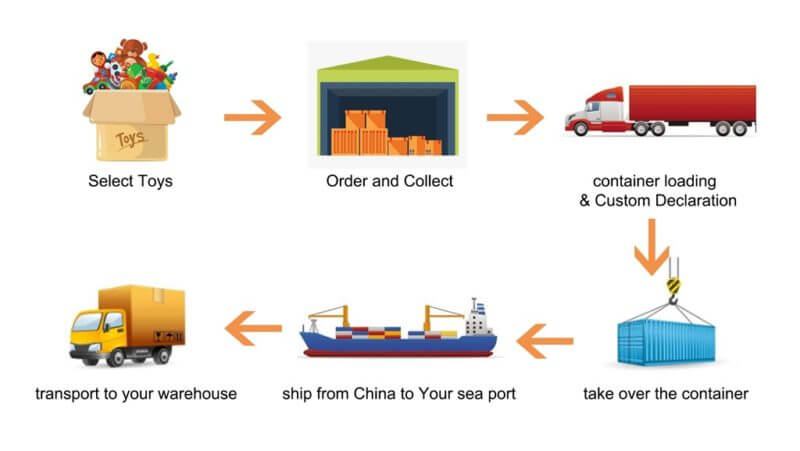
Negotiating China Sourcing Agent Fees
Negotiating sourcing agent fees is a common practice in the industry. Let's explore the factors to consider and provide tips for securing a favorable fee structure.
Understanding the Bargaining Power in Fee Negotiations
Successful fee negotiations with a sourcing agent require a clear understanding of the bargaining power dynamics. Buyers with larger order volumes or recurring sourcing needs often have more leverage in negotiations. This is because the potential for long-term business relationships presents a mutually beneficial opportunity, and agents may be willing to offer more competitive fee structures to secure such partnerships. Additionally, buyers who have done thorough research identified alternative sourcing agents, and understand the prevailing market rates for sourcing services are better positioned to negotiate favorable terms.
Factors to Consider During Fee Negotiations
Several factors should be considered during fee negotiations with a sourcing agent. Firstly, the complexity and scale of the sourcing project should be taken into account, as they directly influence the time, effort, and resources required by the agent. Buyers should assess the specific value the agent brings to their sourcing process and the potential cost savings that can be achieved through the agent's expertise. Additionally, buyers should consider the market rates and fee structures offered by other sourcing agents to establish a benchmark for fair pricing. This information can be used as leverage during negotiations.
Tips for Securing a Favorable Fee Structure
To secure a favorable fee structure, buyers can employ the following tips:
- Conduct thorough research: Gather information about the typical fee structures and market rates in the industry to have a clear understanding of what is reasonable and competitive.
- Seek multiple quotes: Approach multiple sourcing agents and request detailed fee proposals. This allows for a comprehensive comparison of their services and pricing, empowering the buyer to make an informed decision.
- Emphasize long-term partnerships: If the buyer anticipates recurring sourcing needs or desires a long-term relationship with the sourcing agent, emphasize this during negotiations. Highlight the potential for ongoing business and the mutual benefits derived from a stable and fruitful partnership.
- Demonstrate knowledge and alternatives: Show the sourcing agent that you are well informed about the industry, familiar with alternative options, and have done your due diligence. This conveys your seriousness and can help strengthen your bargaining position.
- Consider value over price: While negotiating fees focus on the overall value the sourcing agent can provide rather than solely fixating on the lowest price. Evaluate their expertise, industry knowledge, supplier network, and additional services to assess the true value they bring to the sourcing process.
By employing these strategies, buyers can navigate fee negotiations effectively and secure a fee structure that aligns with their requirements and provides the best value for their sourcing projects.

Best Practices for Working with China Sourcing Agents
To ensure a successful partnership with a China sourcing agent, it is essential to follow best practices that foster effective collaboration. Let's explore some key practices for working with sourcing agents.
Clearly Defining Expectations and Deliverables
At the outset of the engagement, it is crucial to establish clear expectations and deliverables. Clearly communicate your product requirements, quality standards, target pricing, and any specific milestones or deadlines. This clarity helps the sourcing agent understand your needs and align their efforts accordingly, minimizing misunderstandings and ensuring smooth progress throughout the project.
Establishing Open Communication Channels
Maintaining open and transparent communication channels is vital for a productive working relationship. Regularly update the sourcing agent on any changes or developments that may impact the sourcing project. Similarly, encourage the agent to provide timely updates on supplier negotiations, sample inspections, or any other relevant information. Effective communication enables swift issue resolution, facilitates decision-making, and builds trust between the buyer and the agent.
Regular Performance Evaluation and Feedback
Regularly evaluate the performance of the sourcing agent to ensure that expectations are being met and to identify areas for improvement. Provide constructive feedback to help the agent understand your perspective and refine their services accordingly. This feedback loop enables continuous improvement and strengthens the partnership over time. Celebrate successes and acknowledge the agent's contributions, fostering a positive working environment.
Conclusion
In conclusion, sourcing agents play a crucial role in facilitating successful sourcing endeavors, particularly in the context of China. Their expertise, knowledge of the Chinese market, and extensive networks streamline the sourcing process, mitigate risks, and optimize outcomes for buyers. By understanding the various fee structures employed by sourcing agents and considering the factors that influence fees, buyers can make informed decisions when selecting an agent and negotiating favorable fee arrangements. Effective collaboration with sourcing agents, guided by best practices, ensures a productive and mutually beneficial partnership. Selecting a sourcing agent based on value rather than solely on fees is paramount to achieving sourcing success in the competitive global marketplace. Sourcing agents serve as trusted partners, helping businesses navigate the intricacies of international trade and harness the opportunities offered by sourcing from China.

